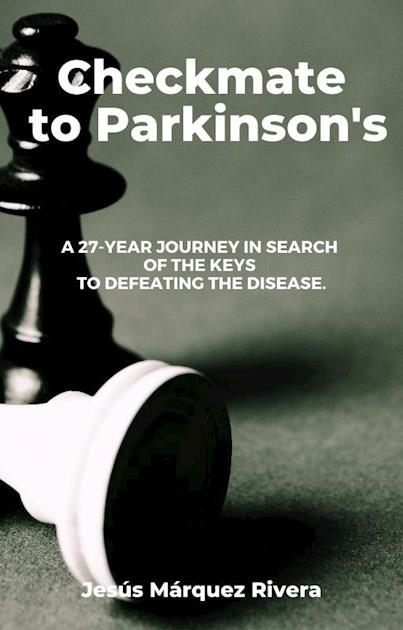(Excerpt from the book I am writing now. I hope you find it useful).
Is Parkinson's disease a lifestyle disease?
2. Non-Parkinsonian style.
(lower risk of developing the disease, even delaying the onset of symptoms by years).
Just as we came to realise the existence of a "Parkinsonian" lifestyle (which my father was almost 100% compliant with), we also saw a number of studies pointing to a "non-Parkinsonian" lifestyle, which seemed to prevent the onset of the disease, both from epidemiological (sort of statistical) studies and from laboratory studies, especially those in which after administering certain substances (magnesium, folic acid, omega 3, green tea, turmeric, sirtuins), it was impossible or very difficult to provoke parkinsonism in animals with the usual toxicants (MPTP, 6-hydroxydopamine, methamphetamine). And it turned out that they were often the same substances: magnesium, vitamin B3, vitamin B6, folic acid or B9, carnitine, green tea, etc.!
The possibility of delaying the onset of disease symptoms by simply drinking coffee, green tea, vitamin C and E supplements, multivitamin preparations or exercise seemed extraordinary to us:
Coffee ... Benedetti (2000), 8-year delay.
Green tea ... Kandinov (2009), delay of 7.7 years.
Vitamins C+E ... Fahn (1992), 2.5 years medication delay.
Preparations
multivitamins ... Maher (2002), appears 3 years later (twins).
Physical exercise ... Tsai (2002).
And the question immediately arose as to what effect several of these habits or substances together would have on delaying the manifestation of the disease or on the possibility of starting levodopa treatment later.
During the documentation phase of this book, I became aware of some surprising studies on the possible prevention of Parkinson's disease. I do not understand the reasoning that since we do not know the exact cause of Parkinson's it cannot be prevented. Drinking coffee or green tea, a diet rich in vegetables and fruit, sunbathing, walking and exercise are habits that are accepted as being able to reduce the risk (preventive).
The consumption of foods rich in vitamin C has been clearly established as protective and preventive against Parkinson's disease. Its deficiency is a risk factor and its consumption has a protective effect (Cerhan 1994, De Rijk 1997, Singh 1995).
It is more than interesting that only natural products are able to offer a broad spectrum of protection against Parkinson's and other diseases. Nature seems stubborn in its desire to create "panaceas": green tea, turmeric, lycopene from tomatoes, resveratrol from wine and red grapes, magnesium, melatonin, omega 3, etc..., capable of acting as antioxidants, anti-inflammatories, liver protectors, inhibitors of alpha-synuclein aberration and the formation of Lewy bodies (which seem to be one of the keys to the disease), gene modifiers (epigenetic), protectors against toxins, etc.
Neuroprotective/preventive habits:
Green tea (Pan 2003).
Coffee (Benedetti 2000, Sobel 2007).
Smoking (Tanner 2002).
Getting enough sunshine, vitamin D (Kneckt 2010).
Foodstuffs:
Tomato, lycopene (Suganuma 2002).
Turmeric (Mythri 2012).
Walnuts (Zhang 2002).
Bioflavonoids (Gao 2012).
A diet rich in certain vitamins would be beneficial:
Vitamin B1 (Iber 1982, Mousseau 1996).
Vitamin B3 (Fall 1999, Hellenbrand 1996, Vrecko 1993).
Vitamin B6 (Frankl 1977, Murakami 2010).
Vitamin B9 (Lau 2006).
Vitamin B12 (Lau 2006, Quershi 2011).
Vitamin C (Cerhan 1994, Martin 2002, Singh 1995, De Rijk 1997).
Vitamin D (Knekt 2010, Evatt 2008, Suzuki 2013).
Vitamin E (Golbe 1988, 1990; De Rijk 1988; Bischot 1993, Martin 2002, Vatassery 1992).
Supplements of certain vitamins would be beneficial:
Vitamin B1 (Luong and Nguyen 2012).
Vitamin B3 (Kuhn 1993, Black 1986).
Vitamin B6 (Lewis 2002, Vainstok 1979).
Vitamin B9 (Duan 2002, Mattson 2003, Postuma 2006, Schwartz 1992).
Vitamin B12 (Rajabally 2013).
Vitamin C (Linazasoro 1995, Fahn 1992).
Vitamin D (Suzuki 2013).
Vitamin E (Fahn 1992).
NOTE: These tables are based on my personal interpretation of the studies I learned about during the time of my father's illness (18 years) and later during the development of the "Parkinson's here and now" project (2012-2021). With all the rights and wrongs that it may contain. Of course, it is up to doctors and researchers to assess each individual case according to the complexity of Parkinson's disease.

